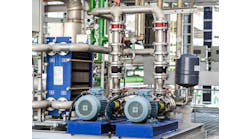Two major processors are teaming up to build a demonstration plant for a process that produces furan dicarboxylic methyl ester (FDME) from fructose. The process has the potential to expand bio-based materials offerings with applications in packaging, textiles, engineering plastics and many other industries, say scientists at DuPont Industrial Biosciences, Wilmington, Del., and Archer Daniels Midland Company (ADM), Chicago, which jointly developed the route.
DuPont and ADM believe the process opens the door to new polymer groups and creates a more efficient, economically viable process. The two companies are partnering on the research and development project, combining ADM’s expertise in fructose production and carbohydrate chemistry with DuPont’s biotechnology, chemistry, materials and applications know-how.
The U.S. Dept. of Energy has identified FDME as an important potential building block for bio-based chemicals. However, the material has not been available at commercial scale and at a reasonable cost, note DuPont and ADM. The new FDME technology is simpler than conventional synthesis methods, and boasts higher yields, less energy use and lower capital costs, they claim. Compared to current methods, which also make other byproducts, DuPont and ADM’s technique uses all sugar in the feedstock, either to produce FDME or for energy recovery. It involves first dehydrating fructose from corn starch. The products of this reaction are oxidized to form furandicarboxylic acid (FDCA), which then reacts with methanol to form FDME.
This means increased performance for all products that will use FDME as a building block, including high-performance renewable chemicals and polymers (polyesters, polyamides, plasticizers and polyurethanes) with applications in packaging, textiles, engineering plastics and many other industries, the companies claim.
“This molecule is a game-changing platform technology. It will enable cost-efficient production of a variety of 100% renewable, high-performance chemicals and polymers with applications across a broad range of industries,” says Simon Herriott, global business director for biomaterials at DuPont.
Polytrimethylene furandicarboxylate (PTF) is one of the first polymers under development utilizing FDME. PTF is a 100% renewable and recyclable polymer that can substantially improve gas-barrier properties when making bottles and other beverage packages. This reportedly makes PTF ideal for improving a beverage’s shelf life.
“Other polymers might include the polyester made from ethylene glycol and FDME, known as PEF as well as the polyester made from butanediol (BDO) and FDME known as PBF. We are excited to work with customers to develop many other polymers and uses for FDME as it becomes available at a competitive price,” says a spokesperson for DuPont and ADM.
The integrated 60-t/y demonstration plant in Decatur, Ill., now being planned will provide potential customers with FDME for testing and research. DuPont says it will use some of the FDME output to make and test PTF.
